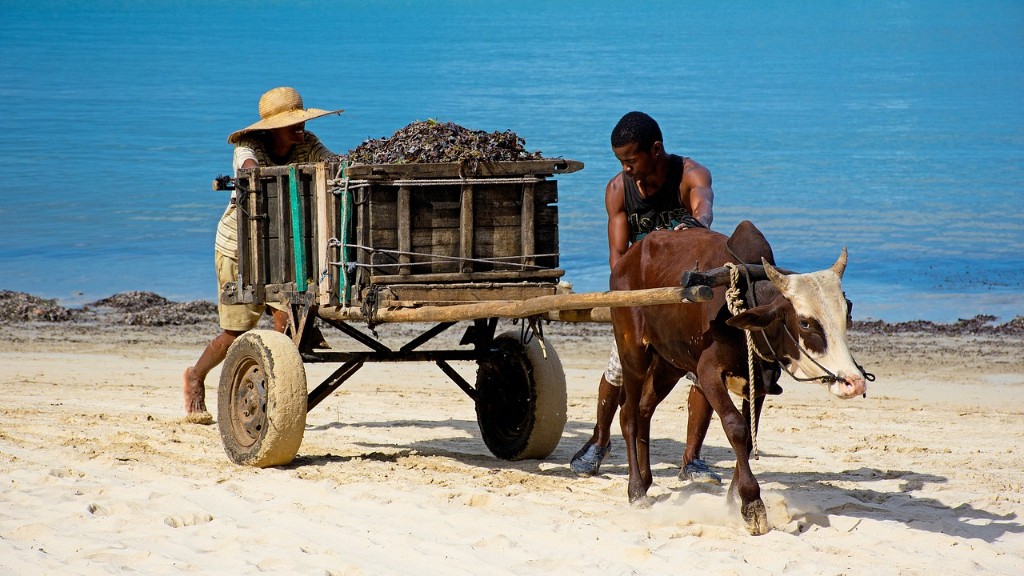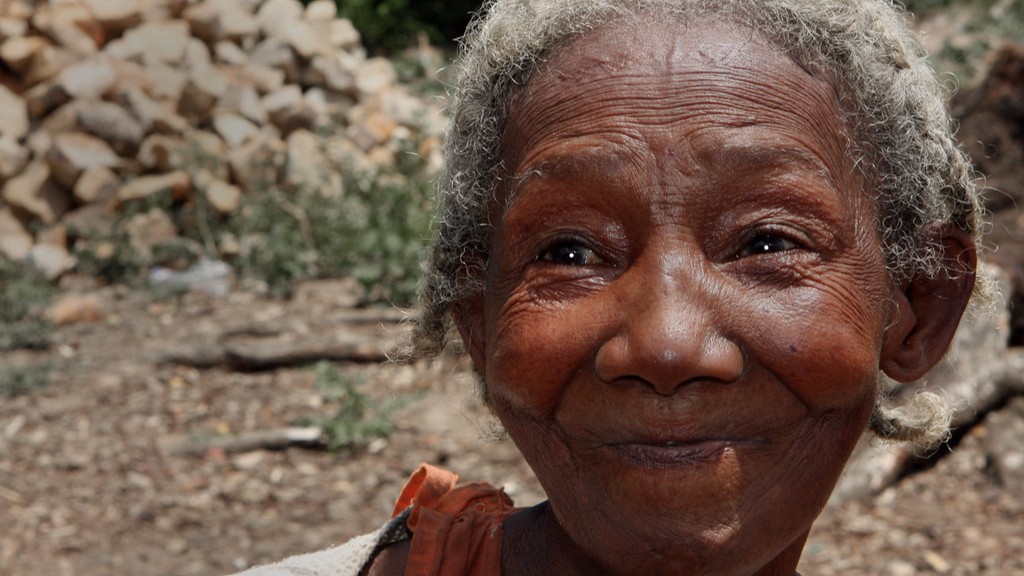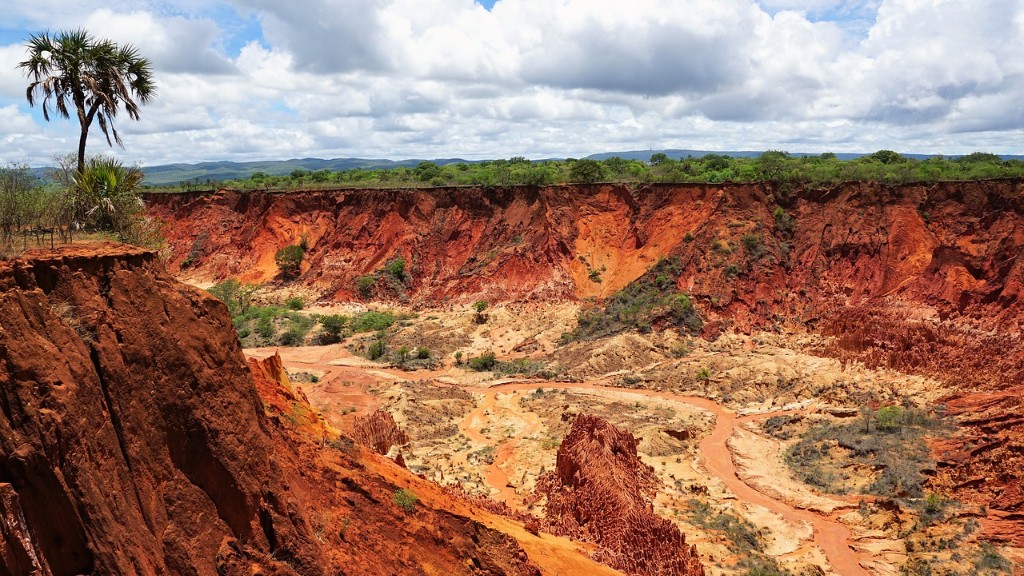Why Do People Leave and Move to Madagascar?
Madagascar, known as the “eighth continent” due to its unique biodiversity and stunning landscapes, has attracted the attention of people from different parts of the world. While some individuals choose to leave their homelands and settle in Madagascar, others establish professional or scientific connections with the island. Understanding the various reasons behind these moves can shed light on the allure and opportunities that this island nation offers.
Madagascar’s rich cultural heritage, unparalleled natural beauty, and the warm hospitality of its people generate a strong magnetic pull. Many expats and immigrants are intrigued by the Malagasy traditions, music, and arts. They find themselves captivated by the vibrant mix of indigenous, Asian, and African cultural influences that shape the everyday life of the Malagasy population.
Another significant factor is Madagascar’s ecological distinctiveness. With over 90% of its wildlife found nowhere else on Earth, including famous lemur species, the island is a treasure trove for biologists, conservationists, and explorers. Scientists, researchers, and nature enthusiasts flock to Madagascar to study its unique ecosystems and biodiversity, leading to extended stays or permanent relocation.
Moreover, Madagascar’s emerging economic opportunities are attracting a growing number of expatriates. Sectors such as agriculture, ecotourism, mining, and textiles offer new prospects for both local residents and foreign investors. The development of infrastructure and the ease of doing business have made Madagascar an appealing destination for individuals seeking career advancement or entrepreneurial ventures in Africa.
The availability of affordable housing and a lower cost of living compared to many Western countries are additional factors that entice individuals to make the move. Madagascar’s real estate market offers a range of options, from beachfront villas to traditional Malagasy houses in lush green surroundings. This diversity accommodates various budgets and lifestyle preferences, making it easier for new residents to find their ideal home.
For some, the decision to move to Madagascar is driven by a desire for a slower pace of life, away from the stress and fast-paced environments of urban centers. The island’s tranquil atmosphere, pristine beaches, and untouched nature offer an idyllic setting for those seeking peace and relaxation. Living in Madagascar provides an opportunity to disconnect from the chaos of modern life and reconnect with nature and oneself.
In conclusion, Madagascar’s allure extends beyond its breathtaking landscapes and rare wildlife. The unique blend of cultural richness, economic potential, and natural beauty make it an attractive destination for individuals seeking new opportunities, adventure, or a change of pace. Whether driven by scientific curiosity, economic incentives, or a longing for a different way of life, those who choose to leave their homes and move to Madagascar embark on a journey filled with endless discovery and experiences.
Exploring Malagasy Culture
The Malagasy population comprises diverse ethnic groups, each with its own customs, language, and traditions. Immersing oneself in this rich cultural tapestry offers a unique opportunity for personal growth and understanding.
Madagascar’s traditional music, such as the enchanting sounds of the valiha (a bamboo tube zither), has gained recognition worldwide. Visitors and residents alike are captivated by the rhythmic melodies and harmonies that echo through the island.
Art lovers find inspiration in the vibrant and intricate wood carving traditions of Madagascar. The skill and creativity of local craftsmen produce decorative objects and sculptures that reflect the island’s diverse cultural heritage.
Participating in traditional ceremonies and festivals, such as the Famadihana (a ritual of the Merina people honoring ancestors), provides a deeper understanding of Malagasy spirituality and beliefs.
The integration of these cultural experiences into everyday life enriches the journey of those who choose to explore Madagascar’s cultural diversity.
The Ecological Marvels of Madagascar
Madagascar is a true paradise for nature enthusiasts, offering unparalleled opportunities to explore unique ecosystems and observe incredible wildlife:
The island’s national parks, including Ranomafana and Andasibe-Mantadia, harbor an astonishing array of flora and fauna. The chance to encounter rare lemurs, chameleons, and orchids in their natural habitats is a dream come true for many.
Divers are drawn to Madagascar’s pristine coral reefs, home to an incredible variety of marine life. The underwater landscapes hold dazzling spectacles, from colorful fish to magnificent whale sharks.
Exploring the Avenue of the Baobabs at sunset is an awe-inspiring experience. These majestic, centuries-old trees create a surreal and breathtaking backdrop for photographers and nature lovers alike.
The sheer beauty and ecological significance of Madagascar’s natural wonders are a driving force behind the decisions of those who seek to immerse themselves in this unique environment.
Economic Prospects in Madagascar
Madagascar’s economy has been growing steadily in recent years, providing new opportunities for both locals and foreigners:
The agriculture sector plays a crucial role in the country’s economy, relying on the cultivation of cash crops such as vanilla, cocoa, and cloves. Investors and entrepreneurs are attracted to the potential for sustainable farming practices and export opportunities.
Ecotourism is booming in Madagascar, with nature lovers discovering the island’s untouched beauty. Sustainable lodges and tour companies offer employment and business prospects for locals and expatriates with expertise in the field.
The mining industry, including extraction of minerals such as ilmenite and graphite, presents economic opportunities for foreign investors, contributing to the development of infrastructure and job creation.
The textile and garment sector has experienced significant growth, driven by partnerships with international brands. This expansion has created employment opportunities and positioned Madagascar as a competitive player in the global market.
The emerging economic sectors and investment opportunities continue to attract individuals eager to contribute to Madagascar’s development while building successful careers or businesses.
Affordable Housing and Quality of Life
Madagascar offers a range of housing options that cater to different lifestyles and budgets:
Coastal areas, such as Nosy Be and Ifaty, are popular choices for individuals seeking a beachfront retreat. Villas and bungalows provide a serene and idyllic living environment.
The capital city, Antananarivo, offers a mix of modern apartments, traditional houses, and charming colonial-style residences, reflecting the city’s dynamic character.
Rural areas provide opportunities to reconnect with nature and live a simpler, more self-sustaining lifestyle. Traditional Malagasy houses surrounded by lush greenery offer a peaceful and authentic experience.
Compared to many Western countries, the cost of living in Madagascar is considerably lower. Affordable housing, coupled with lower expenses for groceries, dining out, and transportation, allows residents to enjoy a comfortable lifestyle without the financial stress often found elsewhere.
This combination of affordable housing and a lower cost of living makes Madagascar an appealing choice for those seeking a change of scenery and a higher quality of life.
A Haven for Tranquility and Nature
Living in Madagascar allows individuals to escape the hectic pace of modern life and embrace a slower rhythm:
The island’s stunning beaches, such as those in Nosy Iranja and Sainte Marie, offer peaceful retreats where one can unwind and rejuvenate.
Madagascar’s protected areas and national parks provide tranquil settings for hiking, birdwatching, and meditation.
Engaging with the local communities, such as participating in traditional Malagasy farming techniques or learning the art of weaving, allows individuals to connect with nature and embrace a more sustainable and mindful lifestyle.
The serenity and beauty of Madagascar’s natural surroundings, coupled with the warm and welcoming nature of the Malagasy people, provide a haven for those seeking a peaceful and enriching living experience.
In Conclusion
Madagascar’s allure extends beyond its breathtaking landscapes and rare wildlife. The unique blend of cultural richness, economic potential, and natural beauty make it an attractive destination for individuals seeking new opportunities, adventure, or a change of pace. Whether driven by scientific curiosity, economic incentives, or a longing for a different way of life, those who choose to leave their homes and move to Madagascar embark on a journey filled with endless discovery and experiences.





